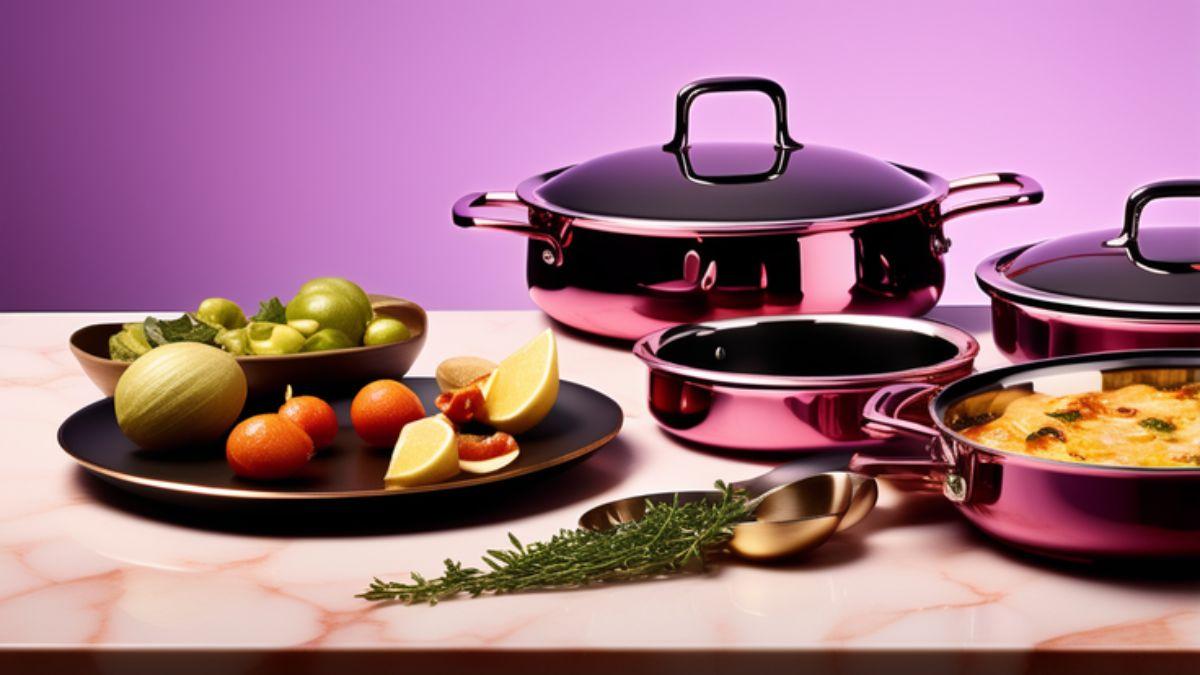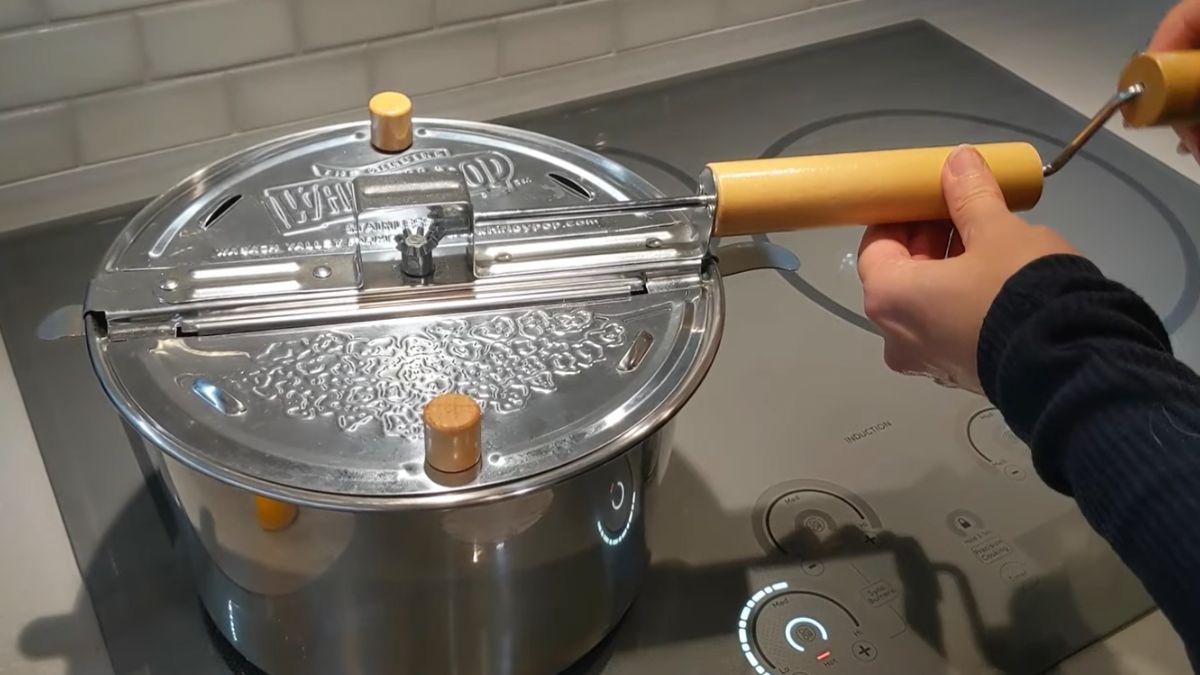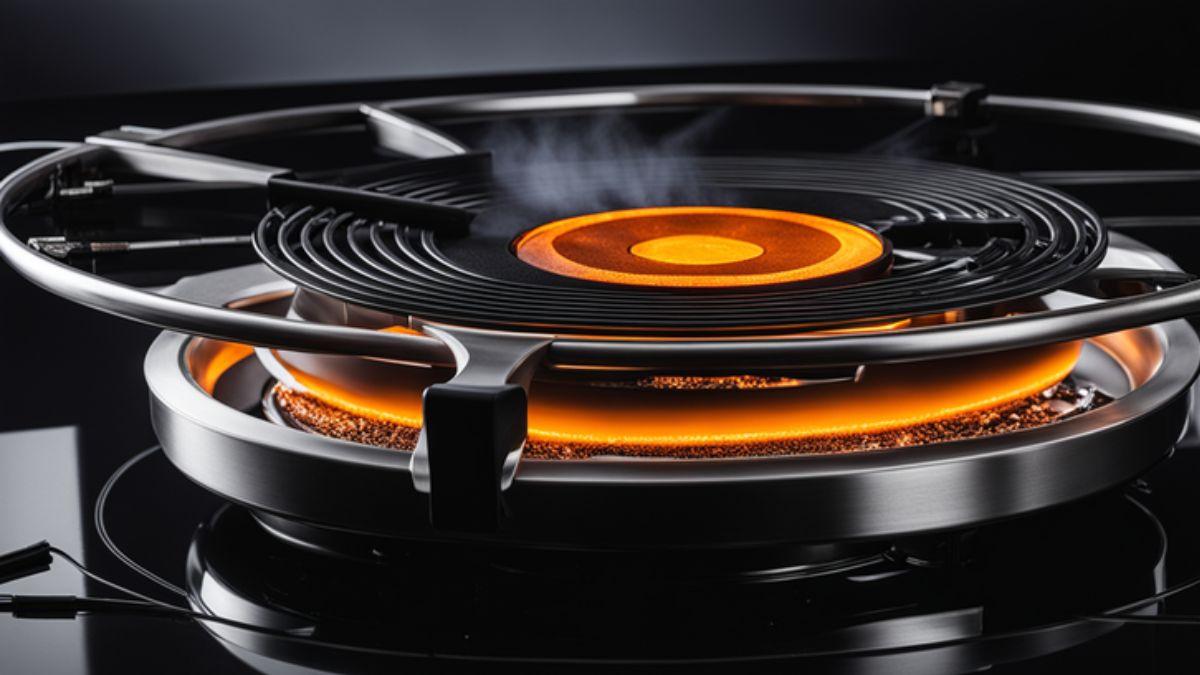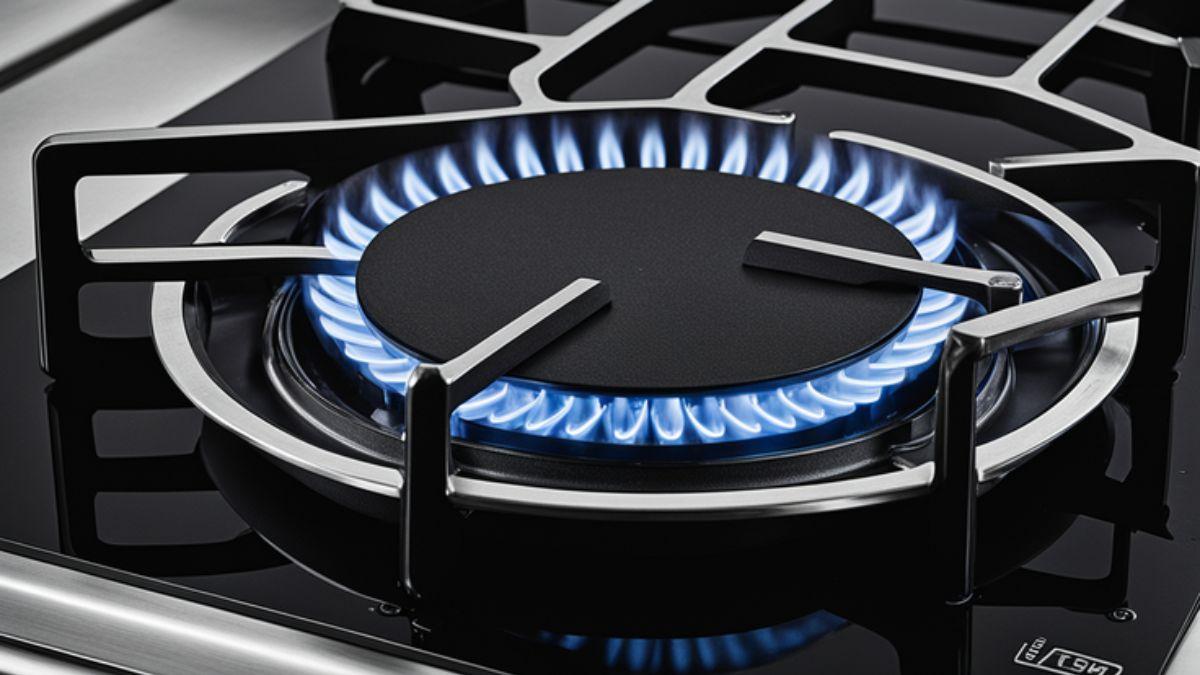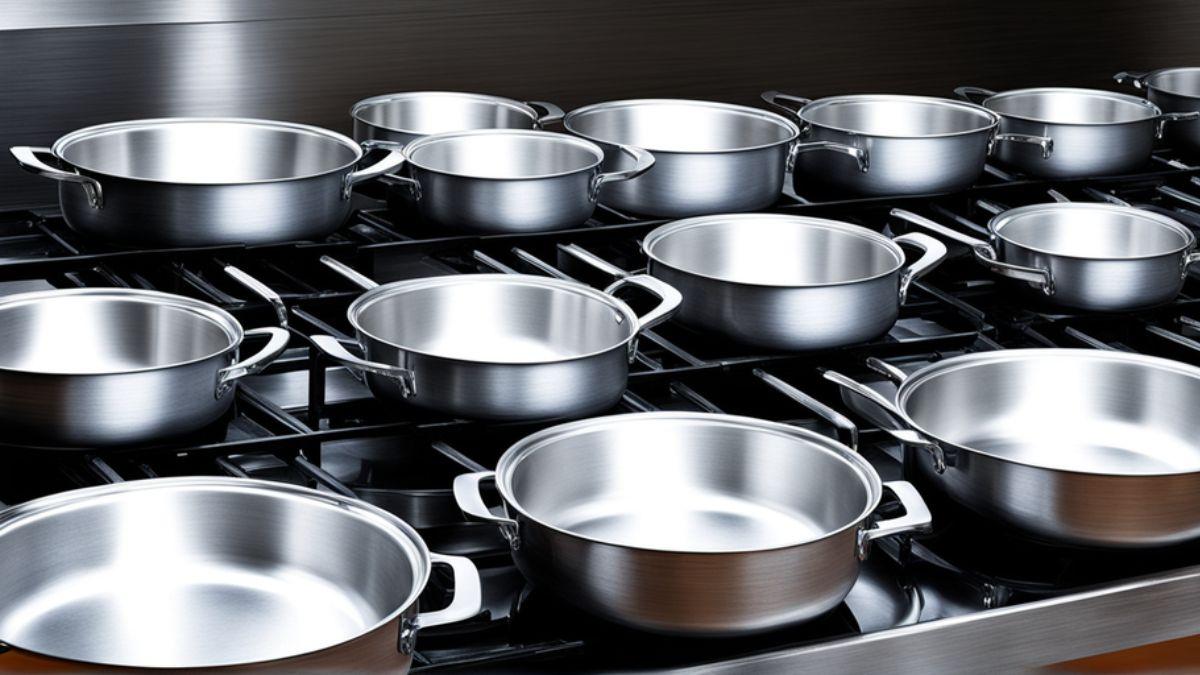
We may earn money or products from the companies mentioned in this post.
Aluminum cookware is not banned in Europe as a whole. Some European countries have regulations on aluminum materials in cookware.
Aluminum cookware is a common feature in many kitchens due to its excellent heat conductivity and affordability. Despite its widespread use, concerns have arisen over the potential health risks associated with aluminum exposure. It is important to note that while aluminum cookware is not banned across Europe, certain countries may enforce specific measures to limit the release of aluminum into food.
These measures aim to safeguard public health by adhering to the recommended safety guidelines. Consumers increasingly seek cookware that is both safe and effective, prompting manufacturers to continuously evaluate and improve their products. As debates around food safety continue, understanding the regulations and recommendations regarding aluminum cookware is crucial for informed decision-making.

Credit: kitchenaidappliance.com
The Ban On Aluminium Cookware In Europe
In an unexpected turn of events, Europe has banned aluminum cookware. This decision sent ripples across the globe. It turns the spotlight on the materials we use in our kitchens every day.
Reasons Behind The Decision
Health concerns sparked this bold move. Europe’s food safety authorities found issues with aluminum. Long-term use can affect health.
Research linked aluminium to several health risks. For example, high exposure might harm bone health. It could also affect the nervous system. The findings led to a firm decision.
- Health risks concern Europeans.
- Aluminium may harm bones and nerves.
- New studies prompted the ban.
Reed: Buy Family Pan Reviews: Find the Perfect Pan for Your Kitchen
Impact On Manufacturers And Retailers
The ban created big waves in the cookware market. Manufacturers and retailers faced a major hit. They had to rethink their strategies.
Some companies adapted quickly. They switched to safer materials. Others struggled to clear existing stock. The ban reshaped the cookware landscape.
| Manufacturers | Retailers | Consumers |
|---|---|---|
| Search for alternatives | Clear current stock | Find new cookware |
| Redesign products | Shift marketing | Learn about materials |
Job losses could occur. Firms might close down. This ban will not only change cookware options but also people’s jobs.
Health Concerns Associated With Aluminium
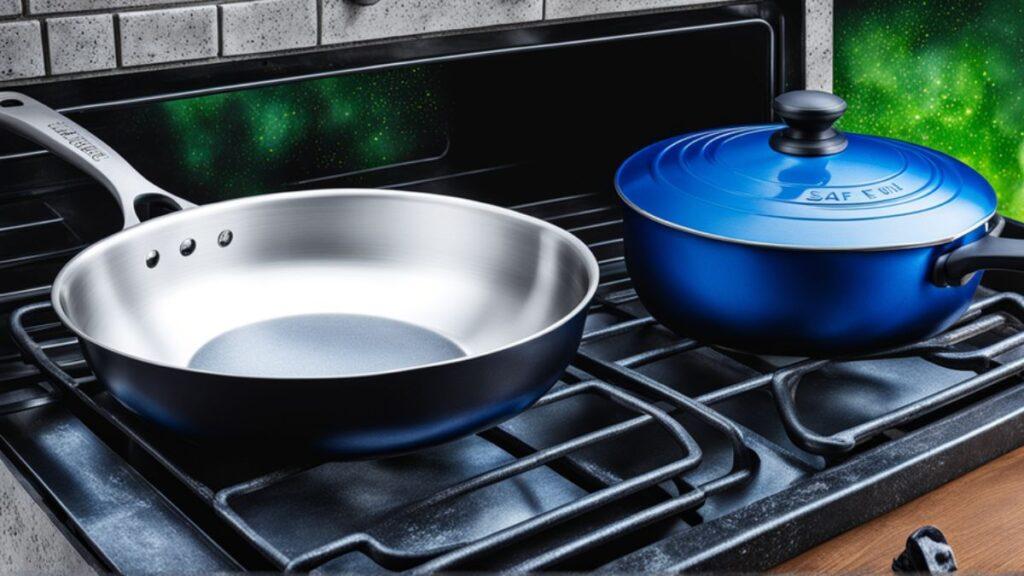
The safety of aluminium cookware is a topic of debate. Some say it is dangerous. Others believe it is safe. Europe has chosen to ban it. This decision raises many questions about the risks linked with aluminium exposure, especially from cooking utensils.
Scientific Studies On Aluminium Exposure
Research shines a light on how aluminium may affect health. Results show it can enter the body through food. Experts are looking into its connection with certain health issues.
- Brain health: Studies suggest a link between aluminium and brain conditions.
- Bone diseases: Too much aluminium might weaken bones.
- Aluminium build-up: It might build up in the body over time.
Aluminium’s Role In Food Safety
During cooking, aluminium can seep into food. This is more common with acidic ingredients like tomatoes. Europe has set new rules because of these findings.
| Acidic Foods | Aluminium Leaching Risk |
|---|---|
| Tomatoes | High |
| Citrus fruits | High |
| Leafy vegetables | Medium |
Europe’s ban aims to prevent such risks. The focus is on keeping harmful elements away from food and people. Safety is a top priority.
Alternatives To Aluminium In The Kitchen
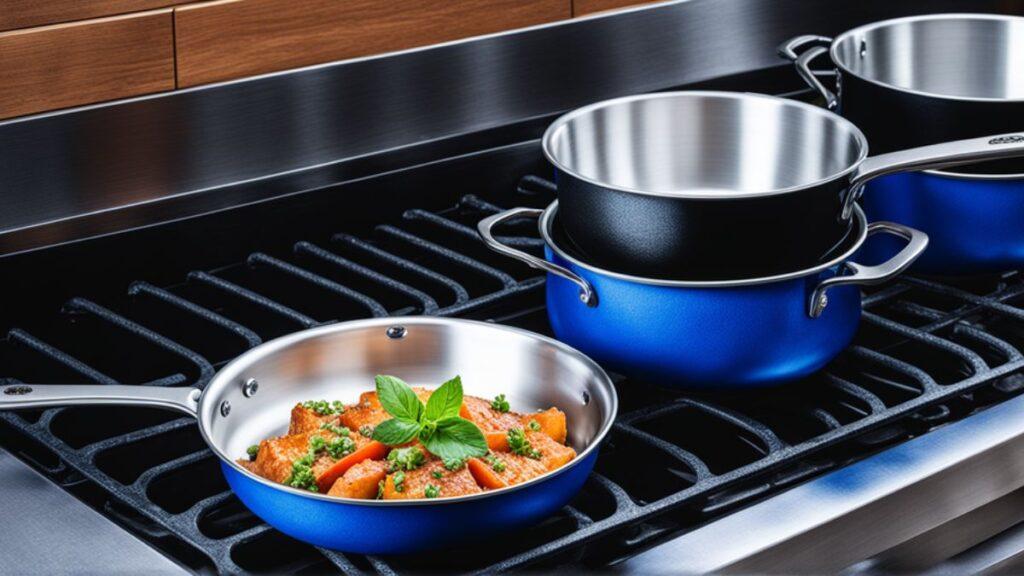
As some areas look to ban aluminium cookware due to health concerns, many are seeking safer options. These alternatives aim to combine safety, durability, and superb cooking performance. Let’s explore the horizon of cookware without aluminium.
Emerging Materials For Cookware
The cookware industry is innovating rapidly. New materials offer great cooking experiences. Let’s dig into these fresh options:
- Ceramic: It heats evenly and cleans with ease.
- Stainless Steel: Classic, tough, and versatile.
- Cast Iron: For those who love a perfect sear.
- Tempered Glass: Watch your food as it cooks.
- Silicone: Flexible and perfect for baking.
Pros And Cons Of Non-aluminium Options
These materials are not just different in looks. They shine in unique ways.
| Material | Pros | Cons |
|---|---|---|
| Ceramic | No metal taste, oven-safe | Can crack with sudden temperature changes |
| Stainless Steel | Durable, non-porous | Food may stick without oil |
| Cast Iron | Superior heat retention | Heavy, requires seasoning |
| Tempered Glass | Non-stick, dishwasher-safe | Not for high-heat cooking |
| Silicone | Non-stick, dishwasher safe | Not for stovetop use |
Selecting the right cookware involves balancing these pros and cons. Your choice shapes your kitchen experience. Choose wisely for a healthy and joyful cooking journey.

Credit: iede.news
Implications For the Global Cookware Industry
Europe’s decision to ban aluminium cookware has sent ripples through the global market. This bold move raises significant questions about the future for manufacturers, retailers, and consumers alike. Producers must navigate this new regulatory landscape, while customers look for alternative cooking solutions. Below, we explore the far-reaching implications this ban could have on the worldwide cookware industry.
Reed: Zeuwing Cookware Reviews: Revolutionize Your Cooking with these Power Packed Pots
Shifts In Consumer Preferences
With the ban in place, there’s a noticeable shift in consumer buying habits. Europeans are now actively seeking cookware that’s considered safe and sustainable. Let’s take a closer look:
- Demand for Non-Aluminium Options: Shoppers are now opting for stainless steel, ceramic, and cast iron cookware.
- Health and Safety Concerns: The focus has intensified on products that promote healthier cooking practices.
- Sustainability Matters: Eco-friendly and recyclable materials are gaining traction.
Adapting Manufacturing Processes
To remain competitive, companies must adjust their manufacturing strategies. There are several key steps being taken:
- Innovation in Materials: Research and development efforts are increasing to find safe, cost-effective alternatives to aluminium.
- Updating Production Lines: Factories are retooling to accommodate the creation of new types of cookware.
- Comply with Regulations: Ensuring compliance with new laws is vital for continued access to European markets.
Next Steps For Consumers And Policy Makers
Europe’s recent decision to ban aluminum cookware raised many questions. Consumers and policymakers now face a challenge. What happens next is crucial. Clear steps can protect health and guide future purchases.
Guidelines For Safe Cookware Usage
Aluminum cookware users need to act. Here’s what you can do:
- Avoid scratched pots and pans that may release more aluminum.
- Use wooden or silicone utensils to prevent scratching.
- Do not store food in aluminum cookware, as it can cause leaching.
- Acidic foods like tomatoes should not be cooked in aluminum.
Consider alternatives such as:
| Material | Properties |
|---|---|
| Stainless Steel | Durable and resistant to scratching |
| Cast Iron | Long-lasting and naturally nonstick |
| Ceramic | Non-reactive and free of metals |
| Glass | Does not leach chemicals or metals |
Reed: Swiss Diamond Cookware Reviews: Everything You Need to Know
Future Regulations And Compliance
Policymakers must ensure safer kitchens across Europe. Here’s the focus:
- Create clear labels on cookware materials.
- Provide educational campaigns about cookware safety.
- Develop strict testing standards for metal leaching.
Compliance with new regulations is essential. Companies must:
- Design products that meet safety criteria.
- Test products rigorously before selling.
- Provide transparent product information.
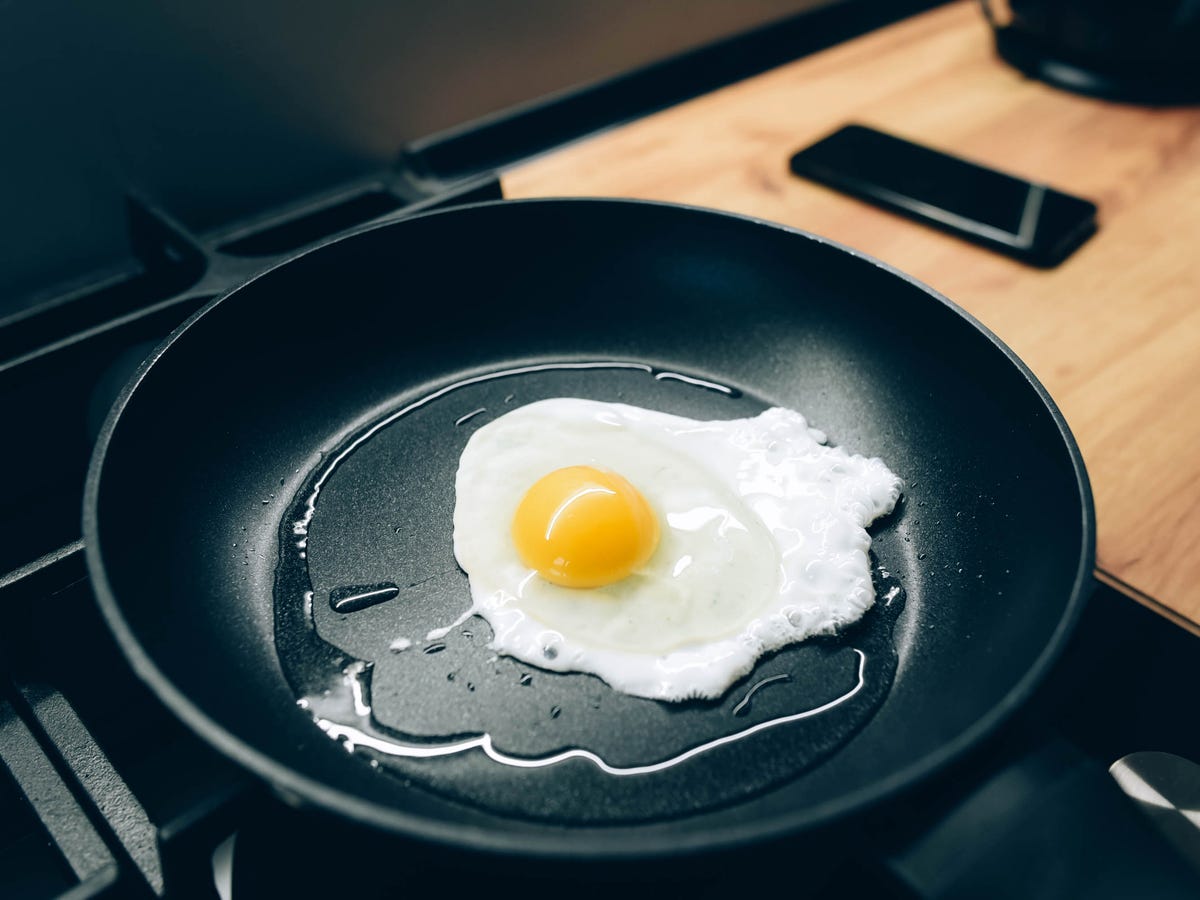
Credit: www.cnet.com
Frequently Asked Questions On Aluminium Cookware Banned In Europe
Why Was Aluminium Cookware Banned In Europe?
What Are The Health Risks Of Aluminium Cookware?
Are There Safe Alternatives To Aluminium Cookware?
How Does Aluminium Cookware Affect Food?
Reed: Is Masterclass Cookware Safe? (PFOA-Free, Non-Toxic, and Durable)
Conclusion
Navigating the latest ban on aluminium cookware in Europe can be daunting. It’s imperative for consumers to stay informed on safety protocols and legal changes regarding kitchen items. Seek alternatives to ensure health and compliance. Stay tuned for further updates on this evolving topic.
Chef safely and wisely!



